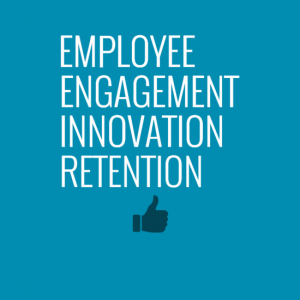CSR Engages the Workforce
Commitment to employees creates engagement with increased levels of innovation, decreased levels of turnover and overall improved productivity. Having engaged, satisfied, motivated, innovative and skilled staff is one of the key challenges for every CEO in Ireland today. To recruit, train and retain the appropriate staff is proving testing in an environment where employee mobility is high and employees want to work for companies whose values align with their own.
There are many examples of companies in Ireland that provide a wide range of innovative best practice CSR initiatives for their employees, including flexible working arrangements, promotion of diversity, staff consultation, worker directors and many more.
The benefits of CSR on current and future employees have been established by academic research and are evidenced through the lived experiences of companies operating both nationally and internationally. They enhance employee engagement, innovation, retention, and reputation.
 Employee Engagement
Employee Engagement
Research shows that when employees are engaged in their company they typically exhibit and apply high skill levels to their role resulting in high productive rates and innovation. Increased employee commitment can happen when an employee feels their values align with the company they are working for and this can lead to real cost savings and increased profitability. These impacts are achieved when employees with high levels of commitment require less supervision (Latif and Gulzar, 2011), higher skill levels among employees leads to more efficient use of materials, lowering production costs (OECD, 2010) and a lowering of long-term costs involved with safety and legal disputes (Sino-German CSR Project, 2012).
Employee Innovation
Embracing equality and diversity can have measurable benefits to a firm in terms of innovation. By developing a diverse workforce from a number of different social, cultural and ethical backgrounds, firms are developing a large knowledge pool that encompasses a number of alternative perspectives.
These different viewpoints can provide added value to the business. The European Commission has outlined the following advantages in utilising an Equality and Diversity agenda; improved stakeholder relationships, enhanced customer satisfaction, wider customer base, better financial results, better company reputation/image and improved efficiency (European Commission, 2008). Of the companies surveyed by The European Commission who had an Equality and Diversity agenda in place, 60% suggested that it has had a positive impact upon their business, with 64% identifying a link between diversity and innovation.
Employee Retention
When efficient CSR policies and procedures are incorporated into the operations of a corporation, the company can be seen to display higher organisational commitment which leads to a reduced staff turnover rate (Sino-German CSR Project, 2012). This reduction in turnover due to increased loyalty has direct economic gains for companies. It is estimated that costs for employee turnover can range from 50% of base salary for entry positions to 400% of base salary for highly-skilled specialists (Sprinkle and Maines, 2010).
Employee Reputation
Similar to the correlation between brand equity and CSR, employees are more attracted to companies that comply with and go beyond their competitors in terms of CSR practices and policies. According to social identity theory if employees feel their values co-align with their employers it can boost workforce morale leading to higher rates of productivity (Sino-German CSR Project, 2012). Along with higher productivity an examination of companies from a number of different sectors highlighted that companies who engage in higher levels of CSR than their competitors can lead to more engaged and committed employees. This “warm glow” feeling by employees that allows them to uphold their moral code is found to be more important than increased wages for employees (Schmitz, 2015).
This article is an extract from our publication, The Business Case for being a Responsible Business.
To receive a free copy, please contact Lorraine O’Toole lotoole@bitc.ie
Tags: csr


